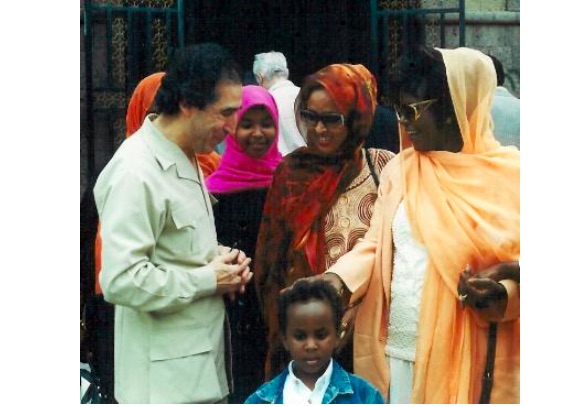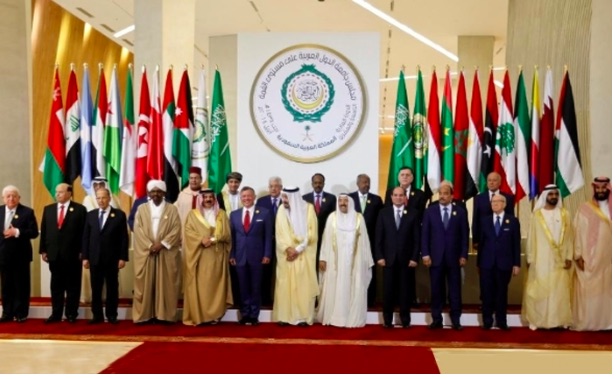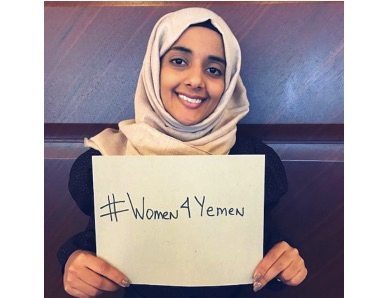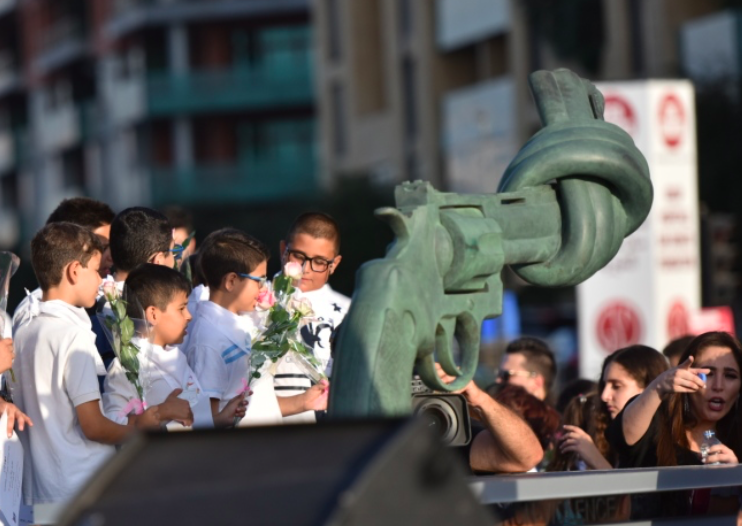… EDUCATION FOR PEACE …
An article by Bios Diallo for Le Point (translation by CPNN)
Oujda, the regional capital of the Moroccan East hosted from 18 to 21 October 2018 the 2nd edition of Maghreb book fair on the theme “Reinventing the universal”. It was a event full of depth.
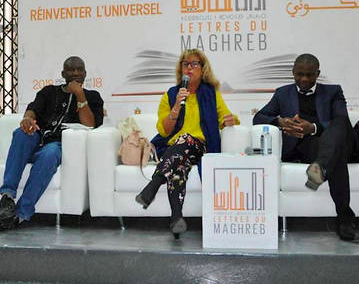
Bordering with Algeria and gateway to Morocco, Oujda is a city rich with culture. This inspired the Minister of Culture and Communication, Mohamed Al Aaraj, to say that the Lettres du Maghreb exhibition resembles the city that hosts it: a melting pot of spiritual and intellectual cultures. Moreover, Oujda has been designated, in 2018, “capital of Arab culture”!
More than 300 writers and editors were present. And beyond the authors from Morocco, Algeria, Tunisia, Mauritania, Libya, Egypt, Sudan, this edition also welcomed writers and poets from Lebanon, Palestine , Syria, Iran, Latin America and Europe. Sub-Saharan Africa was also present throughout Côte d’Ivoire, a country of honor. The president of the show, Mohamed Mbarki, spoke of a “Maghreb and African ambition” to build through letters.
Towards universality
It remains to be seen how to promote and lead Maghreb literatures towards universality. Writer Jalal El Hakmaoui, who is also curator of the show, said: “It is not a question of creating universality, but of putting it into perspective through the contributions of thinkers. It means transcending the conflicts of the world and the ideologies of hate, to move towards a world that is open and respectful of the other. With “Reinventing the Universal”, the speakers invited positive ideas to combat the discourses that exploit fear.
The public was spoiled for choice of themes. The halls were filled by visitors thirsty for knowledge and debate. The subject “Islam and modernity” catalyzed many passions of the Maghreb. Indeed, between radicalization and violence, enlightenment is needed. And if Islam, as a personal faith, is not refractory to modernity, the external gaze on it is now biased. “No, Islam is not violent,” protests Algerian publisher and translator Sakhr Benhassine. And for good reason, if one investigates those who perpetrate violence, one discovers those with limited religious and human qualities. It is therefore for other motives that the ignoble is committed, and not Islam. At the round table “Sufism and the culture of peace”, rapper, slammer and writer Abd al Malik agreed: “It is our duty to enlighten those who do not really have access to the book,” he argues. “Since I am interested in Sufism, as I travel through the world of the original texts, I discover the strength and spirit of peace contained in the sacred writings. You just have to believe that people are badly informed.”
(This article is continued in the column on the right.)
(click here for the French original of this article)
Question for this article:
What is the relation between peace and education?
(Article continued from left column)
Themes that challenge current events
“The Maghreb seen from elsewhere” and “Being a migrant today” overlap by the fact of departure and return, the gaze of the other and of oneself. The Maghreb, itself a land of confluences, is now experiencing many crossings to Europe. Just as it has known the loss of its youth in search of better horizons towards Europe, Canada and the United States. But because, among other things, attacks and violence often committed by individuals claiming Islam, migrants and non-migrants are stigmatized. “However,” said Fodé Sylla, a great activist of the 2000s in France and moderator of one of the meetings, “we will not give in to the fear of the other. Neither the Muslim nor the migration carries the genes of violence. The culture of violence is dishonestly imposed on them. “We must avoid rigid judgments and identities,” adds Moroccan novelist Naima Lahbil Tagemouati.
The imagination of languages, the creation, the dream of elsewhere, the edition and circulation of the book will not be left out. And if Maghreb literature comes from brilliant writers, it must be recognized that their talents evolved elsewhere, an elsewhere more attractive, but at the expense of a deprived land. This is what the show wants to correct, say the organizers. The Wali of the region, keen on the readings, questions: “Will we always be condemned to see our authors celebrate elsewhere?” Mouaad Jamai refuses to abdicate:” What are we able to value here in the Maghreb! Oujda is a favorable environment. We can express here loud and clear a common will to bring about a Maghreb edition that is coherent and solidaire on the scale of the subregion around our authors and editors.”
The junction of two worlds
Maghreb and sub-Saharan Africa share the same dilemma. “Our literature is still behind, regrets the Ivorian poet Henry Nkoumo. Produced elsewhere, little disseminated and encouraged at home, it can not be otherwise. But it is time for us to be able to produce on our own, and to allow our schoolchildren and readers to have access to our productions as they should! This is no doubt why the Maghreb Book Fair focuses on youth (writing workshops, comics, news and images with writers and illustrators) and local editions.
And the necessary construction of bridges. “Designating an African country as guest of honor for each edition,” said Abdelkader Retnani, president of the Union of Publishers of Morocco and one of the mainstays of the event, is part of the will of the kingdom to mark its anchor as African. For this second edition, Côte d’Ivoire succeeds Senegal. Maurice Kouakou Bandaman, Minister of Culture and Francophonie of Côte d’Ivoire, sees this as a comforting sign: “By making the Maghrebi Book Fair of Oujda a unifying door open to the world, the organizers give Morocco beautiful colors and the expectations of our book industry. ”
The visitors left with their hands full of books, with ideas to mature before 2019!

